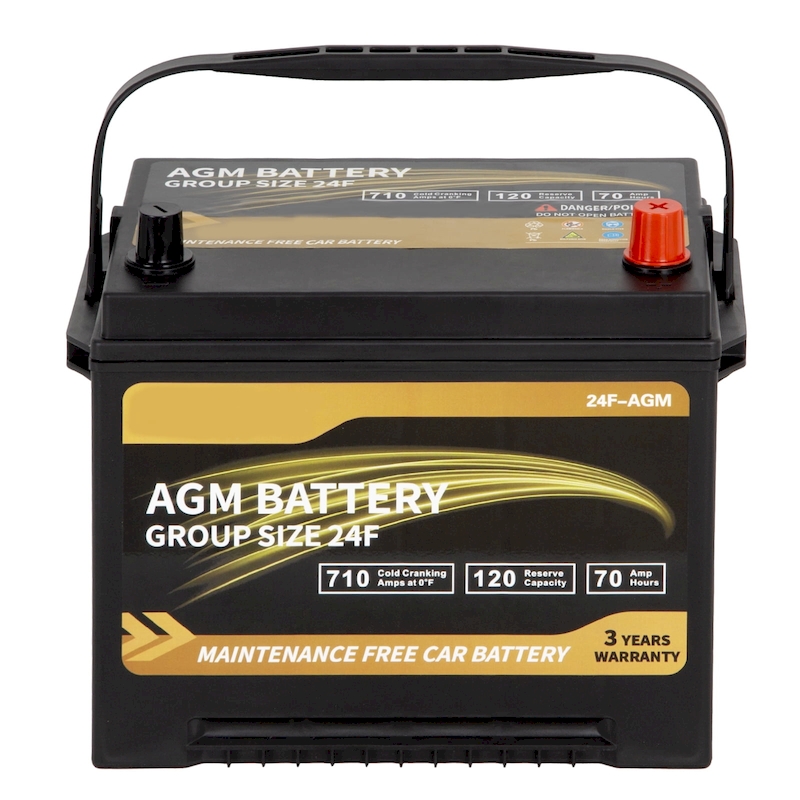Car batteries are a crucial component of any vehicle, providing the necessary power to start the engine and operate electrical systems. Many car owners, however, often overlook the weight of these batteries, which can significantly affect a car’s performance. Understanding how much car batteries weigh helps you make informed decisions regarding replacement, maintenance, and even modifications to your vehicle. In this article, we’ll explore the weight of various types of car batteries, factors influencing their weight, and their impact on vehicle performance. So, if you’ve ever wondered about how much do car batteries weigh, read on to discover everything you need to know about this essential automotive component.

Understanding Car Batteries
To comprehend how much car batteries weigh, one must first understand their function and design. Car batteries typically serve two primary roles: supplying electrical energy to start the engine and providing power to various electrical components when the engine is off. The most common type of battery used in vehicles is the lead-acid battery, consisting of lead plates and sulfuric acid. This type of battery has been the industry standard for decades due to its relatively low cost, reliability, and availability.
Aside from lead-acid batteries, other types, such as lithium-ion and absorbed glass mat (AGM), are becoming increasingly popular. Each type has distinct characteristics, including weight, which affects how much do car batteries weigh overall.
Lead-acid batteries usually weigh between 30 to 50 pounds (13.6 to 22.7 kg), whereas lithium-ion batteries can weigh less due to their advanced chemistry and lightweight materials. An understanding of these various types helps highlight the significance of their weight and its implications for performance and efficiency.
The Different Types of Car Batteries
When exploring how much car batteries weigh, it’s essential to recognize the different types that are commonly used in automobiles today.
- Lead-Acid Batteries: As mentioned previously, these are the traditional battery types found in most vehicles. They are divided into two subcategories: flooded and sealed. Flooded batteries usually weigh more due to their construction.
- Absorbed Glass Mat (AGM) Batteries: These batteries are a variation of lead-acid batteries, featuring a different construction that allows for better performance and cycle stability. AGM batteries can weigh between 30 to 50 pounds, similar to standard lead-acid batteries, but offer superior efficiency.
- Lithium-Ion Batteries: Frequently found in electric vehicles (EVs), these batteries provide a lighter alternative due to their advanced materials. Depending on the size and model, lithium-ion batteries can weigh around 60 to 120 pounds (27 to 54 kg).
By carefully evaluating each battery type’s weight, you can ensure that your vehicle is equipped with the right battery to meet your specific needs.

Factors Influencing Car Battery Weight
Several factors contribute to the overall weight of car batteries. An understanding of these factors is crucial when considering how much do car batteries weigh.
- Battery Composition: The materials used in a battery’s construction play a significant role in its overall weight. For instance, lead-acid batteries typically contain heavier materials than lithium-ion batteries, making them much weightier.
- Battery Size and Capacity: Larger batteries have a greater capacity to store energy, leading to increased weight. This factor is particularly crucial for vehicles that require higher performance or more power-hungry electronics.
- Design: The overall design and engineering of the battery can also influence its weight. Modern batteries are often designed to be as compact and lightweight as possible, which can lead to weight reductions.
- State of Charge: A battery’s weight can vary based on its state of charge. For example, a fully charged lead-acid battery can weigh more than a discharged one due to the chemical reactions occurring inside the battery.
Understanding these factors helps you appreciate the complexity of battery design and its implications on how much do car batteries weigh, especially when considering replacements or upgrades.
Weight Comparisons Across Battery Types
When assessing how much do car batteries weigh, it’s helpful to compare the weights of various battery types often used across different vehicles. Below, we provide a comparative breakdown of common battery types and their respective weights.
- Regular Lead-Acid Battery: Typically weighs between 30 to 50 pounds, with variations based on size and manufacturer.
- AGM Battery: Has a weight range similar to lead-acid batteries, spanning from 30 to 50 pounds but is often denser and offers more power.
- Lithium-Ion Battery: These batteries can weigh significantly more, ranging from 60 to 120 pounds depending on their capacity and size. Their light weight for storage capacity can be a strong incentive for those converting to electric vehicles.
- High-Performance Power Cells: Some specialty batteries designed for racing or performance vehicles can vary widely, sometimes exceeding 120 pounds, depending on their construction and purpose.
Carefully considering these comparisons helps consumers identify the best battery choice for their vehicle, balancing weight with performance.
The Impact of Battery Weight on Vehicle Performance
The discussion of how much do car batteries weigh inevitably leads to an evaluation of how battery weight can influence overall vehicle performance.
- Fuel Efficiency: Heavier batteries can increase a vehicle’s overall weight, leading to reduced fuel efficiency. Lighter battery options may improve a car’s performance, making them an attractive alternative for those looking to enhance fuel efficiency.
- Handling and Ride Quality: The placement of a heavier battery can affect the handling of a vehicle. A lower center of gravity can be achieved by placing a battery lower in the chassis, which can improve handling and stability.
- Acceleration and Power Delivery: A lighter battery can reduce the load on the vehicle’s engine, potentially improving acceleration and responsiveness, particularly in performance-oriented cars.
Understanding the relationship between battery weight and various performance factors is essential for drivers who wish to optimize their vehicle’s capabilities.
Maintaining Your Car Battery for Optimal Weight
To ensure the longevity and efficiency of your car battery, proper maintenance is crucial. Regular maintenance will help you keep your battery in good condition while often influencing how much do car batteries weigh over time.
- Regular Inspections: Inspecting your battery for signs of wear, damage, or corrosion is essential. Cleaning contacts and ensuring secure connections can help maintain battery performance.
- Keep it Charged: Avoid letting your battery discharge significantly. A well-charged battery not only performs better, but it can help minimize weight fluctuations due to chemical reactions within.
- Monitor Temperature: Extreme temperature conditions can affect battery performance and weight. Keeping your vehicle in a controlled environment can prevent damage from thermal stress.
Incorporating straightforward maintenance routines can contribute positively to your battery’s weight and overall functionality.
Performance Considerations in Extreme Conditions
Vehicle performance can be largely affected by battery weight, especially in adverse weather conditions. Understanding how much car batteries weigh informs your approach to battery maintenance and usage in extreme environments.
- Cold Weather: Batteries tend to lose power rapidly in cold conditions, and heavier batteries might struggle more than lighter options. Ensuring your battery is rated for cold weather can make all the difference in maintaining performance during harsh winter months.
- Heat Exposure: Excessive heat can too affect a battery’s durability and efficacy. A robust battery may handle heat better than lighter, less durable models, but excess weight can also affect vehicle performance.
- Humidity and Moisture: Heavy batteries are typically more resistant to humidity impacts, but maintenance is essential. Corrosion can occur with any battery type if connections are not correctly maintained.
Making informed choices based on potential operating environments can help you sustain vehicle efficiency regardless of the weather.

Conclusion
In summation, understanding how much do car batteries weigh is essential for car owners and enthusiasts alike. Factors such as battery type, size, and maintenance all play significant roles in determining weight. The impact of weight on performance can influence decisions about battery choice, especially in high-performance or efficiency-conscious applications. By exploring various battery types, the factors influencing their weight, and how all of that ties into vehicle performance, we gain a comprehensive understanding of this crucial component in our cars.
Whether you’re considering replacing your old battery, switching to a lighter alternative, or simply looking to optimize your vehicle’s performance, knowing the weight of your car battery—and how it can affect your car—provides an important piece of the puzzle. Armed with this knowledge, you can make educated decisions that will keep your vehicle running at its best.


